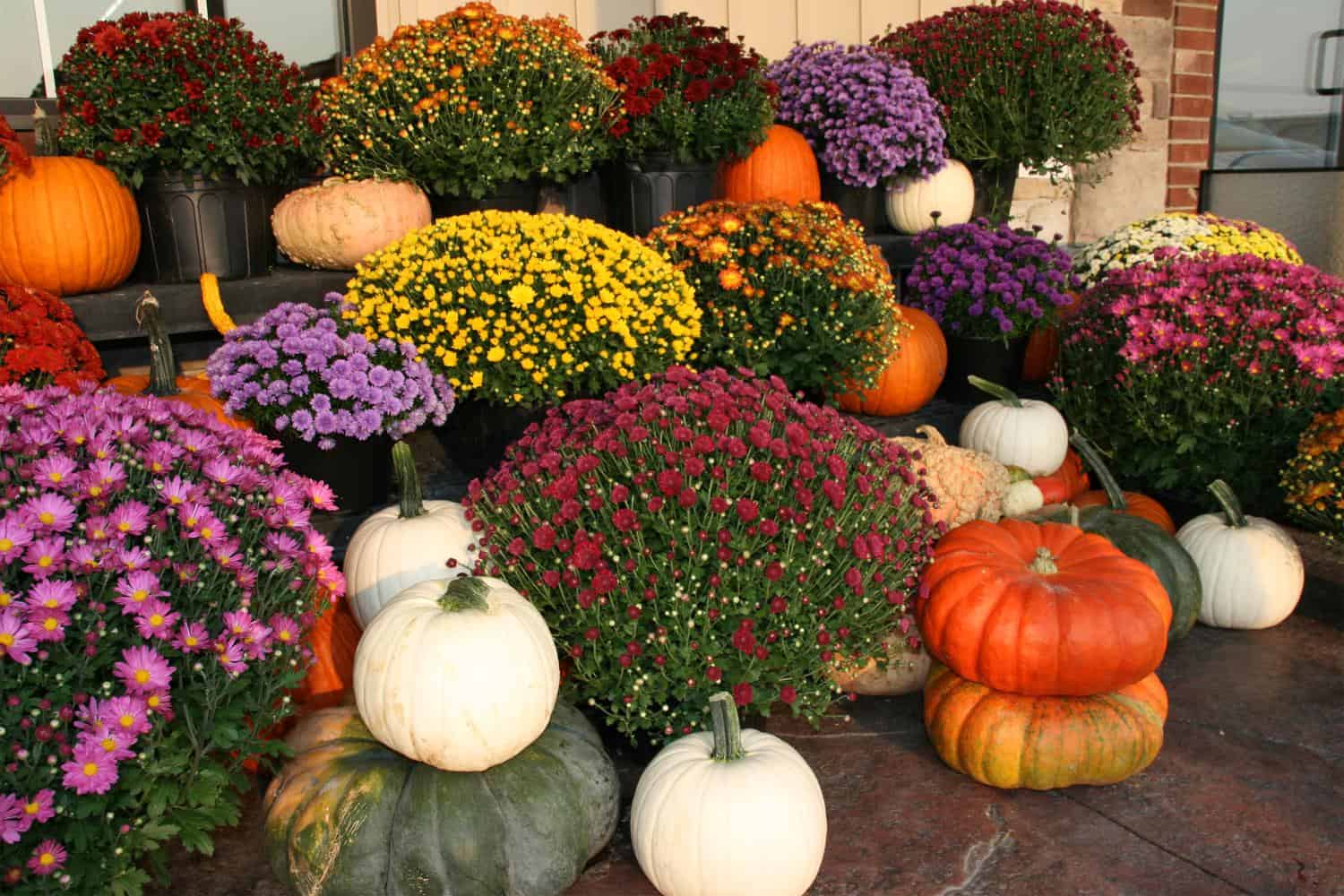Fall Plants Toxic To Pets

The beauty of fall foliage is undeniable, but pet owners should be wary of some of this season’s potentially hazardous plants, especially when it comes to our pets. While this list is not exhaustive, keep reading for information about keeping your dogs and cats (and horses and goats!) safe this autumn.
Chrysanthemums
Chrysanthemums, also known as mums, are a quintessential sign of fall. They’re perfect for decorating both indoors and outdoors, but it’s crucial to keep them out of reach of your pets. Mums are toxic to dogs, cats and horses. Mum ingestion can lead to vomiting, diarrhea, lack of coordination, and skin irritation.
Red Maple Trees
Red maple trees are generally toxic only in very specific instances, but you should still keep them away from pets if possible. The leaves of this plant must be dried and/or wilted to pose a threat, but only if they are still attached to the tree, as on a fallen branch. The individual leaves that fall naturally this season are not necessarily worrisome. Horses are the most susceptible to toxicity.
If ingested, wilted red maple leaves can lead to lethargy, lack of appetite, stomach pain, and difficulty breathing. Unfortunately, red maple leaf toxicity can lead to death.
Ginkgo Trees (Female Ginkgo biloba)
Ginkgo trees are famous for their stunning yellow leaves in the fall, but it’s important to know the difference between male and female trees for your pet’s safety.
Male ginkgo trees are not considered toxic. However, the seeds from female ginkgo trees contain ginkgotoxin, which is toxic to pets. If consumed, it can potentially cause vomiting, irritability, and even seizures.
The easiest way to tell the trees apart is by the presence or absence of fruit and smell. Female trees will produce the fleshy, smelly fruit in the fall.
Rayless Goldenrod (Haplopappus heterophyllus)
Rayless Goldenrod is a dangerous plant to have around livestock. Ingestion of this plant can cause poisoning in horses, cattle, sheep, and goats.
Horses are particularly susceptible to the toxic effects of this plant. It is crucial to be aware of this hazard and prevent your animals from consuming it.
Horses eating one to ten percent of their body weight in the plant can develop lethal clinical effects such as:
- Hindlimb Weakness
- Knuckling At The Fetlocks
- Posterior Paralysis
- Acetone Odor To The Breath
- Severe Muscle Tremors
- Weakness
- Recumbency
- Respiratory Paralysis
- Coma/Death
If you suspect your horse has ingested rayless goldenrod, it is crucial to contact your veterinarian immediately for guidance and treatment.
In Case of a Plant Poisoning Emergency
If you know—or even suspect—that your pet has ingested one of these four fall problem plants, act quickly to get help. While Cherry Creek Veterinary Hospital does not have 24/7 hours, you can reach out to us for urgent care during business hours: (916) 349-2755.
No matter where you are or what time it is, you should know the location and contact information for the closest animal emergency hospital.
You can also reach a pet poison hotline all day, every day. If you need to call, keep in mind your pet’s age, approximate weight, any chronic conditions, regular medications, and other basic medical background. The ASPCA Animal Poison Control number is (888) 426-4435, and the Pet Poison Helpline number is (855) 764-766. Be aware that there could be a consultation or incident fee.
Keep your pets safe this fall by taking precautions around hazardous plants!
